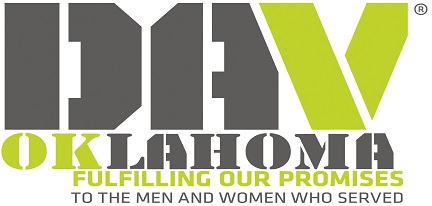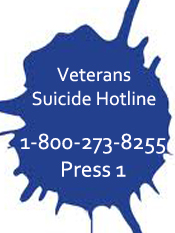P.L. 115-26, a bill to amend the Veterans Access, Choice and Accountability Act
of 2014 to modify the termination date for the Veterans Choice Program, and for
other purposes
The Veterans Access, Choice and Accountability Act of 2014 established the Veterans
Choice Program, a temporary authority allowing certain veteran to receive necessary
medical care and services from non-VA providers. This law eliminates the three-year
sunset date of the Veterans Choice Program, allows VA to be the primary payer for care
provided through the Choice program, and share medical information with community
health care providers treating a veteran patient.
P.L. 115-31, Consolidated Appropriations Act, 2017
This appropriations bill provided funding for the following VA programs and services:
• Veterans Treatment Courts (Resolution No. 105);
• Programs to assist homeless veterans and veterans at risk of homelessness
(Resolution No. 239);
• Funding to implement the Jason Simcakoski Memorial and Promise Act (title IX
of P.L. 114–198, as amended), which DAV supports based on Resolution No.
116, calling for humane, consistent pain management programs and Resolution
No. 128, calling for comprehensive health care options, including alternative
therapies.
P.L. 115-41, Department of Veterans Affairs Accountability and Whistleblower
Protection Act
Congress and the Administration have sought ways to ensure that VA employees are
held accountable for improper actions or poor performance without violating their right to
due process protections culminating in enactment of P.L. 115-41. The act also makes it
possible to more quickly hire certain medical professionals. DAV recognizes this bill as
an important step forward for VA and the veterans it serves to improve the work
environment for the many compassionate and dedicated employees providing care to
our nation’s ill and injured veterans.
DAV Resolution 221 supports establishing meaningful accountability measures with due
process rights for VA employees.
P.L. 115-46, VA Choice and Quality Employment Act
As first introduced, DAV was strongly opposed to this emergency spending bill, which
proposed cuts in veterans benefits—specifically eliminating eligibility for older veterans’
to receive individual unemployability benefits and a COLA round down—to fund higher
than expected costs for the VA Choice program. More than 26,000 DAV supporters
contacted Congress through the Commander’s Action Network to express opposition to
these unacceptable proposed cuts in benefits. The House bill with these proposed “pay
fors” ultimately failed on the House floor.
DAV and other VSOs participated in negotiations on a new bill stripped of the
unacceptable provisions, adding language to help the recruitment and retention of VA
health professionals, and authorizing 27 pending leases for major medical facilities.
These additional provisions allowed us to support the bill based on Resolution 107,
calling for modernization of VA health care infrastructure, Resolution 112, urging timely
access to quality VA health care and medical services, and Resolution 228, supporting
effective recruitment, retention and development of the VA health care system
workforce.
P.L. 115-48, The New Forever GI Bill (formally known as, The Harry W. Colmery
Veterans Educational Assistance Act of 2017)
This law improves provisions in the existing G.I. Bill and provides more flexibility for
using educational benefits. The measure contains a number of provisions that
specifically impact disabled veterans and their families, including:
• Increases monthly Dependents Educational Assistance (DEA) payments by
about 40 percent effective October 1, 2018 (note: effective August 1, 2018, DEA
decreases from 45 to 36 months to be consistent with other VA educational
programs);
• Eliminates the 15-year limit for using the G.I. Bill, allowing for the use of the
educational benefits for life, for those who were discharged after January 1,
2013;
• Grants full G.I. Bill benefits to Purple Heart Recipients, regardless of total time in
service effective August 1, 2018;
• Provides G.I. Bill eligibility for reservists undergoing medical care for active duty
injuries effective August 1, 2018;
• Restores used G.I. bill benefits to enrolled students whose school permanently
closes after January 1, 2015, effective November 14, 2017; and
• Allows veterans who are National Guard members and Reservists and receiving
Vocational Rehabilitation and Employment (VR&E) benefits, to “pause” their
eligibility so their time under the VR&E program is not negatively affected while
called up for active duty. This provision takes effect immediately.
P.L. 115-55, Veterans Appeals Improvement and Modernization Act
This sweeping overhaul of the veterans benefits appeals process was enacted on
August 23, 2017, with DAV’s strongest support based on DAV Resolution No. 212,
calling for an improved and modernized claims and appeals process for reviewing
veterans and their family members’ claims for benefits.
DAV worked with VA, other veterans service organizations, and the Board of Veterans’
Appeals (Board) to simplify and improve the benefits appeals process, resulting in P.L.
115-55. This act created three options for a claimant to pick after his or her claim’s initial
adjudication: a higher level of review; a supplemental claim (best for claims with new
evidence); or a notice of disagreement that elects for the reconsideration to go straight
to the Board onto a docket with a hearing before the Board or a docket without a
hearing. In November 2017, the VA initiated the Rapid Appeals Modernization Program
(RAMP), a program to allow legacy appeals (oldest pending appeals) consideration
under two of the new options. DAV is working closely with the Department on RAMP
and the final implementation phase set for February 2019.
P.L. 115-62, Department of Veterans Affairs Expiring Authorities Act of 2017
On September 29, 2017 P.L. 115-62, the Department of Veterans Affairs Expiring
Authorities Act of 2017, was enacted into law. This bill extends a number of current
authorities in veterans programs covering health care, benefits, homelessness, and
other matters. The provisions discussed below are supported by resolutions approved
by DAV’s membership at our last national convention.
Based on several resolutions, DAV strongly supports this law which extends, by two
years, authority for VA to provide:
• nursing home care to veterans with service-connected disabilities (Resolution
No. 062);
• assistance and support services for caregivers (Resolution No. 009);
• continuation of a pilot program for child care for certain veterans seeking health
care services (Resolution No. 239);
• women veterans counseling in retreat settings pilot program (Resolution No.
225);
• VA reimbursement to veterans for beneficiary travel to vet centers in the same
manner as if they received services within VA health care facilities (one
additional year) (Resolution No. 240);
• a pilot program to provide neurobehavioral therapy and services to veterans with
traumatic brain injuries (extended only by three months, pending the submission
of a final report to Congress due December 2017) (Resolution No. 238);
• rehabilitation and vocational benefits to active duty service members with severe
injuries (one year) (Resolution No. 251); and
• immediate rehabilitative needs of service members while their probable medical
discharges are pending (Resolution No. 252).
The Act extends, by one year, many existing provisions to assist homeless veterans,
including:
• Veterans’ Employment and Training Service (VETS) program administered by
the Department of Labor;
• grants for child care for certain veterans participating in homeless programs;
• authority for referral and counseling services for certain “at risk” veterans; and
• supportive services for very low income families in permanent housing to
preempt homelessness (Resolution No. 239).
It extends, by two years:
• “special needs” grants to homeless provider grantees who work with populations
who require additional attention such as hospice services or intensive mental
health care; and
• authority for VA to continue to provide comprehensive community services to
homeless veterans with serious mental illness.
Finally, the law authorizes appropriations for two additional years for adaptive sports
programs for disabled veterans and service members. It also extends authority for
specially adapted housing grant programs.
P.L. 115-75, Veterans’ Compensation Cost-of-Living Adjustment Act of 2017
On November 2, 2017, President Trump signed P.L. 115-75, which provides a cost-of-living
adjustment (COLA) increase of 2 percent, effective December 1, 2017, for
veterans disability compensation and dependency and indemnity compensation (DIC)
for survivors and certain other benefits. This increase matches the COLA provided to
Social Security recipients.
This COLA benefits injured and ill veterans, their families and survivors by helping to
maintain the value of VA benefits against inflation. Without annual COLAs, many
disabled veterans, who sacrificed their own health and family life for the good of our
nation, may not be able to maintain the quality of life they deserve. DAV Resolution No.
028 calls for a realistic COLA increase.



